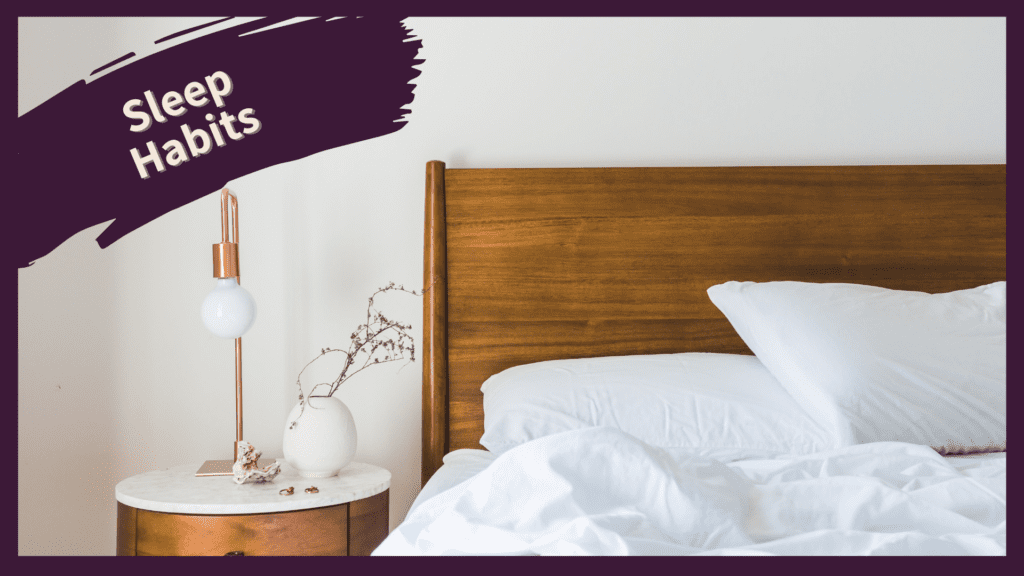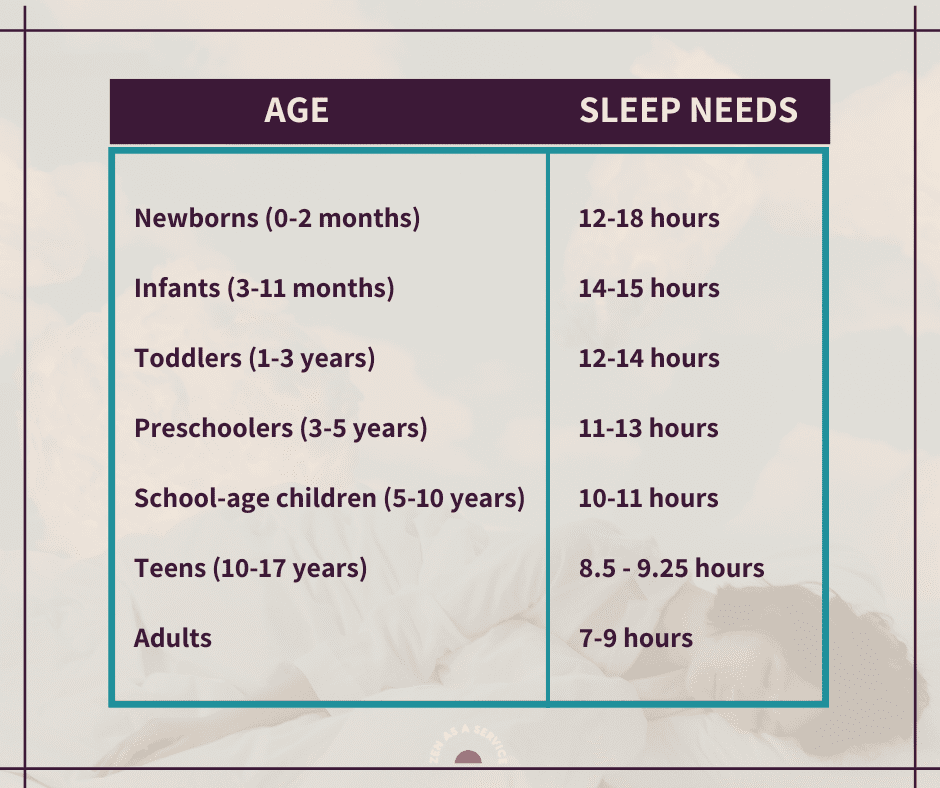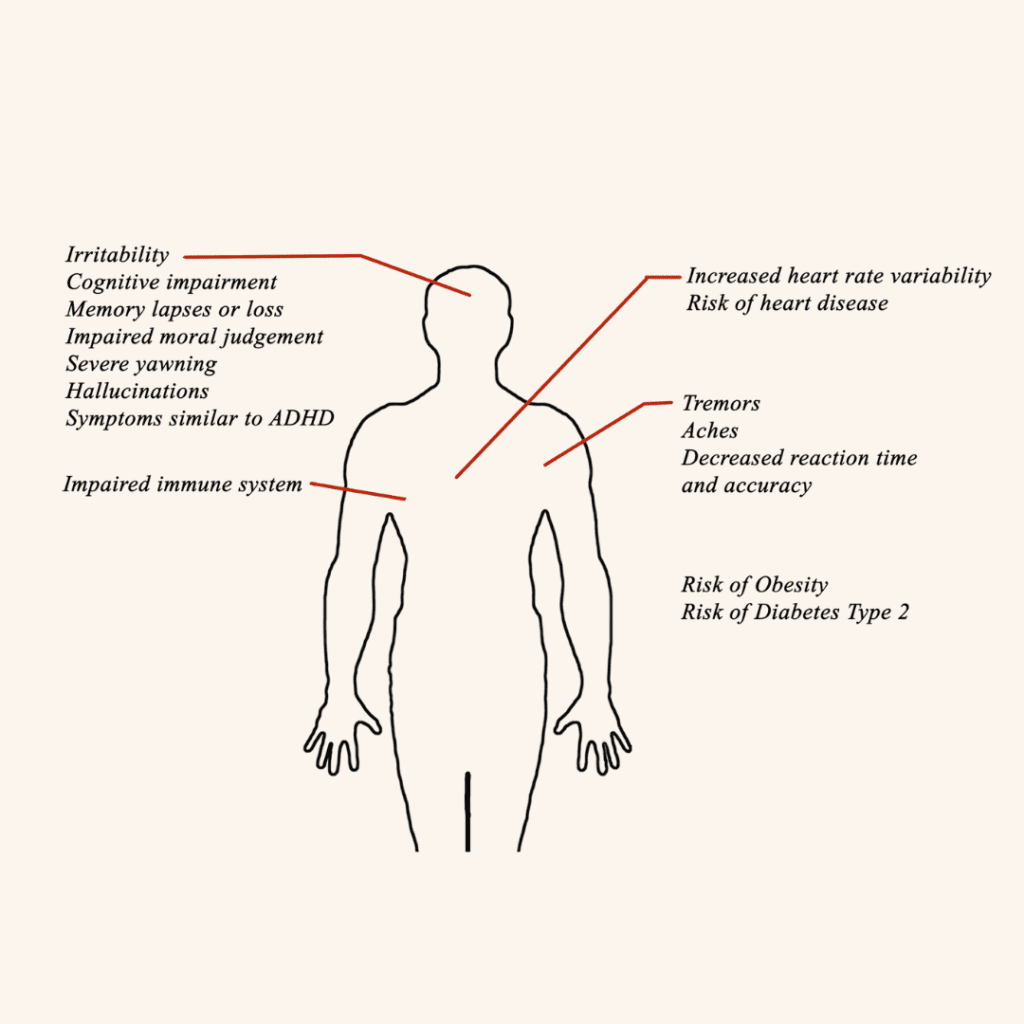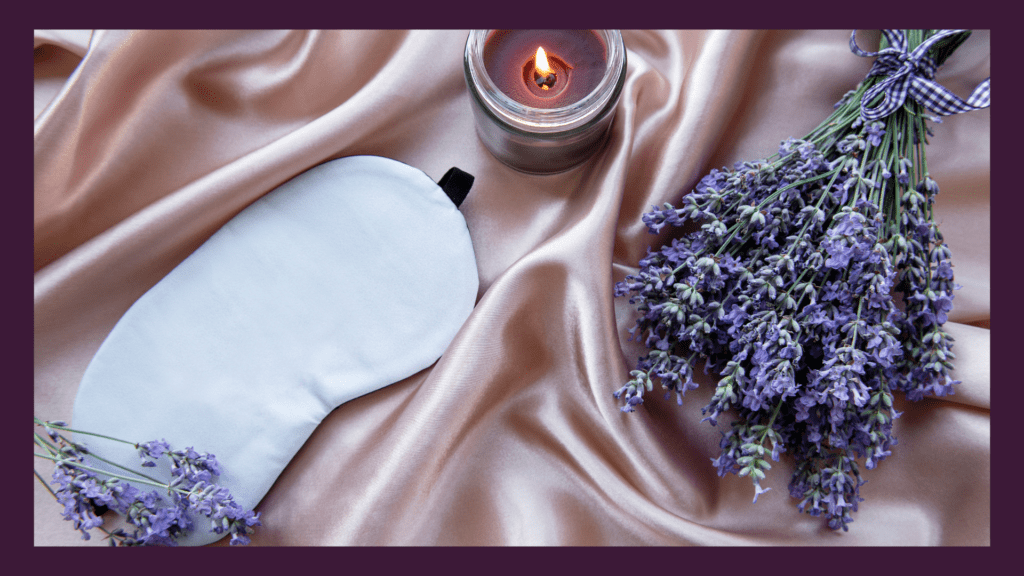“The best bridge between despair and hope is a good night’s sleep.” -E. Joseph Cossman
Healthy sleep habits are the most undervalued contributor to optimal health and performance. Sleep is a significant part of our existence- we spend a third of our life sleeping. It is an essential life-sustaining activity that impacts our physical, mental, and emotional well-being. This article will help you develop realistic expectations about sleep and decrease frustration surrounding sleep through actionable changes.

Why make sleep habits a priority?
When we get insufficient sleep, we easily feel anxious, defiant, depressed, and irritable. This leads to being easily frustrated and distracted. Our natural motivation and organizational skills suffer as a result.
Being a “good sleeper” isn’t a quality we are born with. We have control over the quality of our sleep. First, we must recognize its importance, understand what it is, and then prioritize sleep. There are a lot of myths about sleep. Let’s debunk some of those misconceptions.
Myths around Sleep Habits

“Sleep is an acquired habit. Cells don’t sleep. Fish swim in the water all night. Even a horse doesn’t sleep. A man doesn’t need any sleep.” -Thomas Edison
Thomas Edison incorrectly said, “Man doesn’t need any sleep.” We know enough now to prove his statement incorrect, but what about all these more subtle folklore we hear, such as “your body gets used to getting less sleep” or “snoring is normal.” These common beliefs in American culture lead to physical and mental health issues.
Here are some common myths:
- Sleep is just rest.
- To function best, we need to get eight hours of sleep.
- Your body gets used to getting less sleep.
- Some people can function perfectly on a few hours of sleep.
- Losing an hour of sleep is no big deal.
- We adjust to sleeping changes easily.
- If you can get it, more sleep is always healthier.
- Waking up during the night means we will be tired all day.
- We need drugs to alleviate sleeping problems.
- Alcohol before bed improves sleep.
- We can make up for lost sleep on weekends.
- As we age, we need less sleep.
- Exercising at night disturbs sleep.
- Hitting snooze provides meaningful extra rest.
- Sleeping with a light on is harmless.
- Daily naps or sleeping longer on weekends can help us erase our sleep debt.
- Naps are a waste of time.
- Snoring is normal.
If you believe some of these statements, you’re not alone. Unfortunately, misinformation about sleep is woven into the American belief system. Keep reading to see why these common myths are false.
Sleep Theories
To prioritize sleep, it’s important to understand why sleep is important. Here are a few leading theories on why we sleep:
Theory #1: Rest, Heal, Repair, and Restore
Scientists believe that sleep helps revitalize the physiological process and restore the energy supplies that have been depleted through the day. When we sleep, the body repairs its systems (i.e. immune system), rebuilds muscle tissue, and increases cell division/protein synthesis. This time is also spent restoring mental functioning. We spend all day thinking and creating, using our energy stores. When we sleep, the brain replenishes the body’s systems.

Theory #2: Evolve and Adapt
Another theory is that sleep is used to conserve our energy. We sleep during times when wakefulness is most hazardous. Animals with fewer predators sleep more. Animals lower on the food chain sleep less because they need to be alert more often to protect themselves.
Theory #3: Consolidate Information
Sleeping at night, our brains can fully organize and process information. The learning process requires long-term memory, which is fueled by deep rest. During sleep, the mind can discard unwanted information and store useful information.
Theory #4: Dream
When we dream, we interpret stimuli and try to make sense of the world. During REM sleep, the brain can weave new material into the memory system. This can also help reduce emotional arousal and help us cope with traumatic or stressful events.
How Much Sleep Do We Need?
The Center for Disease Control (CDC) recommends 7-9 hours of sleep per night for adults between the ages of 19-64. The amount of sleep you need within that range varies per person. To know your exact sleep duration, consider keeping a sleep diary for a week. This is worth the 5 minutes of reflection per day to gain information on your sleep habits.

Sleep Cycles
When we sleep, our brain goes through natural cycles of activity. There are four total stages of sleep, divided into two phases. The two phases are Non-Rem (NREM) and REM:
- Non-REM sleep happens first and includes three stages. The last two stages of non-REM sleep is when you sleep deeply. It’s hard to wake up from this stage of sleep.
- REM sleep happens about an hour to an hour and a half after falling asleep. REM sleep is when you tend to have vivid dreams.

There are 4 stages of sleep in which NREM and REM take place:
- NREM Stage 1– the transition between being awake and asleep. This lasts about 5-10 minutes.
- NREM Stage 2– body temperature drops, and heart rate slows. The brain begins to produce sleep spindles. This lasts for approximately 20 minutes.
- NREM Stage 3– muscles relax, and blood pressure and breathing rates drop. This is when our deepest sleep occurs.
- REM Sleep– the brain becomes more active during this stage. The body becomes relaxed and immobilized. The eyes move rapidly, and dreams occur.
We go through about 4 cycles of sleep within a night. The later we are in the cycle phase, the longer REM sleep occurs.
Sleep Disorders
According to the American Sleep Association (ASA), 30% of Americans suffer from a sleeping disorder. Common disorders include insomnia, sleep apnea, restless leg syndrome, hypersomnia, narcolepsy, and shift work disorder.

Insomnia
Being unable to fall asleep and stay asleep. This is the most common sleep disorder.
Short-term insomnia may be caused by stress or changes in your schedule or environment. It can last for a few days or weeks. Chronic (long-term) insomnia occurs 3 or more nights a week and lasts over 3 months. If you’re experiencing this, check our Desk Yoga for Insomnia on demand.
Sleep Apnea
A breathing disorder in which you stop breathing for 10 seconds or more during sleep. Breathing techniques* and oral exercises can help reduce symptoms. Check out Breathing for Sleep Apnea on demand.
Shift Work Disorder
Primarily affects people whose jobs require them to work late at night or early in the morning (doctors, nurses, bartenders, firefighters, or pizza delivery drivers). Sleeping during the day and working at night can cause misalignment between a person’s body and the circadian rhythms that guide their sleep-wake schedule based on natural light and darkness cycles.

Effects of Sleep Deprivation
The adverse effects of sleep deprivation include irritability, cognitive impairment, memory loss, impaired moral judgment, hallucinations, ADHD, increased heart rate variability, heart disease, tremors, aches, decreased reaction time, risk of obesity, and type 2 diabetes. Many of these problems can be repaired with restorative sleep.
Sleep Hygiene

Here are some simple ways to take control of your sleep quality.
Set Your Sleep Schedule
Prioritize sleep by setting a fixed wake-up time every day. Even if you don’t have work or an event to wake up for, wake up at the same time every day. This will naturally regulate the body’s sleep rhythm so that you become tired around the same time the night before. Make gradual adjustments. If you feel tired during the day due to the new sleep routine, take a nap but no longer than 20 min. Try not to overdo it with naps. Otherwise, you’ll have trouble falling asleep that night and waking up the next morning.
Follow a Nightly Routine
Keep your nightly routine consistent. Budget 30-60 minutes for winding down before bed. Dim the lights in the bedroom and unplug from electronics. I charge my phone in the kitchen at night, so I don’t look at my phone before bed or first thing in the morning. Don’t toss and turn. If you’re having trouble falling asleep within 20 minutes, get out of bed and do something soothing. Check our Desk Yoga for Insomnia for ideas.
Cultivate Healthy Daily Habits
A good night’s sleep starts the morning of. Get 10 minutes of daylight exposure to set the circadian rhythm. Be physically active and exert the body’s natural energy. If possible, reduce smoking and alcohol consumption, especially later in the evening. Cut back on caffeine in the afternoons and evenings, as well. Eat earlier in the evening, preferably three hours before going to bed. The bed should be used for sleep and sex only. Restrict any other activities, such as working or reading, from bed.
Optimize Your Bedroom
To sleep, the body needs to be comfortable. Have a comfortable mattress and pillow. Use excellent bedding that feels good on your skin. Set the room temperature to be cool yet comfortable. It will be difficult to fall asleep if it’s too hot or cold. Block out any bright lights, such as night lights or city lights. If needed, a sleeping mask is great for that. Drown our sporadic noise as much as possible with earplugs or noise machines. Calming scents such as lavender can also be helpful.
In summary
We can control the quality of our sleep by making small, gradual changes to our sleep habits. Sleep is the most undervalued contributor to optimal health and performance. Without restorative sleep, our physical and mental health suffers greatly.
ZaaS | Zen as a Service offers yoga, meditation, and well-being services to B Corps and large companies worldwide. Join us!



